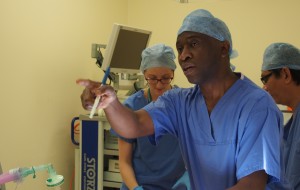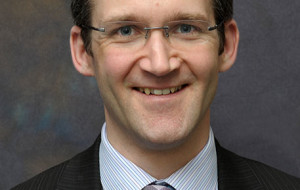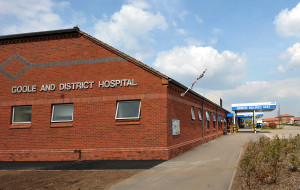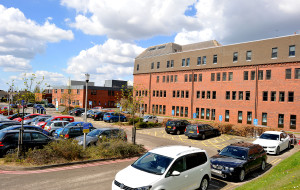Hand surgery
Carpal tunnel release surgery
Treatment for carpal tunnel syndrome (CTS) depends on the severity of the condition and how long you have had it. Surgery for CTS is known as carpal tunnel decompression or carpal tunnel release surgery and is performed on a day case basis, which means you will not have to stay in hospital overnight.
What happens during the operation?
A local anaesthetic is used to numb your hand and wrist, but you will remain awake throughout the operation. The surgery can be performed as open surgery, which involves making a single cut in the wrist, and is the traditional type of operation. Your surgeon will be able to discuss the most appropriate method of surgery with you.
In most cases, carpal tunnel release surgery provides a complete and permanent cure. However, as with any form of surgery there is always a small risk of complications.
Reported complications of CTS include:
- Infection
- Failure during surgery to fully separate the roof of the carpal tunnel, usually resulting in persistent CTS symptoms
- Bleeding after the operation
- Nerve injury
- Scarring
- Persistent wrist pain, which may be different to the original symptoms
- In rare cases, the return of CTS symptoms long after apparently successful surgery
- Complex regional pain syndrome – a rare but chronic (long-term) condition that causes a burning pain in one of the limbs
After care
Following carpal tunnel release surgery, your hand will remain in a bandage for a couple of days and you may need to wear a sling. You should keep your hand raised for 48 hours to help reduce any swelling and stiffness in your fingers. To help prevent stiffness, gently exercise your fingers, shoulder and elbow. You may be able to start these gentle exercises on the day of your operation. After having surgery for carpal tunnel syndrome (CTS), you can use your hand to do light activities that do not cause excessive pain or discomfort. Try to avoid using your hand for more demanding activities until it has completely recovered, which may take several weeks. The recovery time for open release surgery is usually slightly longer than the recovery time for keyhole surgery. Studies have also shown that there is less pain during the first three months after keyhole surgery compared with open release surgery. However, both methods have proven to be equally effective in treating CTS.
To enquire about our services or to make an appointment call us on (03033) 302956 or make an online enquiry
Who will perform this procedure?

Mr Augustine Akali
Consultant plastic surgeon offering plastic, cosmetic and reconstructive surgery.

Mr Iain Chambers
Consultant trauma and orthopaedics surgeon at Scunthorpe and Goole hospitals.
Where can I have this procedure performed?

Goole and District Hospital
Goole hospital is where all of our cosmetic procedures are carried out, although you can choose to have your clinic consultations at Scunthorpe or Grimsby hospitals if this is more convenient.

Scunthorpe General Hospital
A wide range or medical, surgical and diagnostic procedures are available at Scunthorpe hospital. You can also have your clinic consultation for cosmetic procedures here.
How much does it cost?
All prices provided on this website are guide prices only and are subject to change. Whilst we make every effort to provide you with the most accurate, up to date information, prices will change based on your clinical presentation and the complexity of surgery required. If you would like more information on the range of prices for a particular procedure, please contact the team on 03033 302956. A bespoke, personalised fee will always be provided after your first consultation.
| Initial Consultation Fee | From £150 |
| Carpal Tunnel Release Surgery (Unlateral) | From £1414 |
Quality of care
From the moment we receive your request for a consultation through to the completion of your treatment we offer the highest standards of care.
Affordability
We offer a high quality service at competitive prices. As we work out of NHS hospitals we are able to offer procedures that are more affordable than our competitors
FAQ
From 'what's included in the price' to 'how to pay' see some of the questions asked by our patients and the answers.